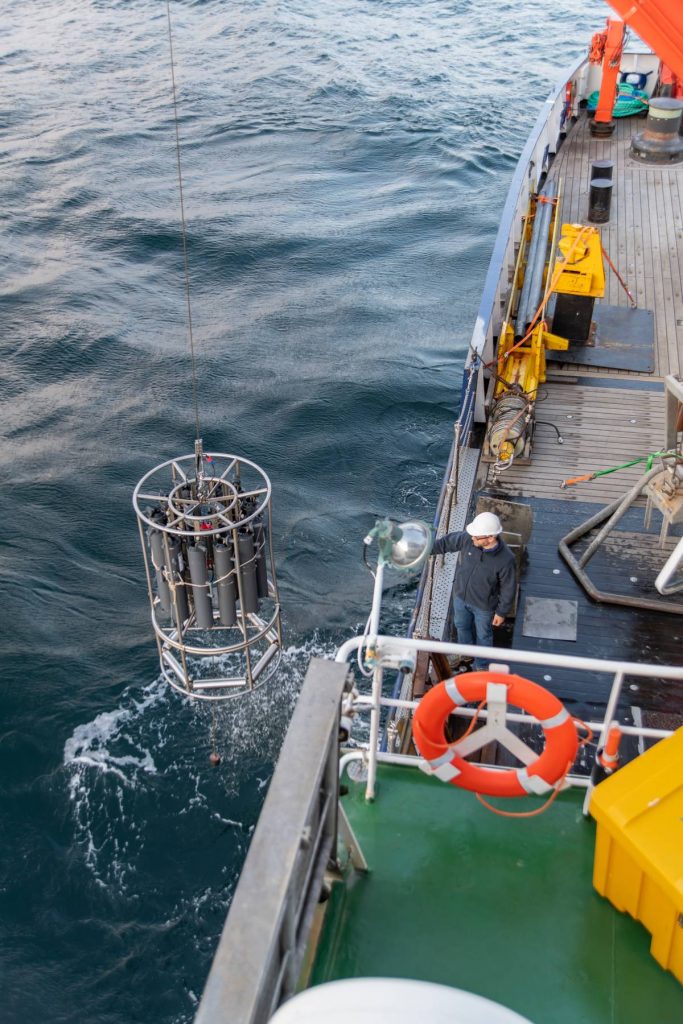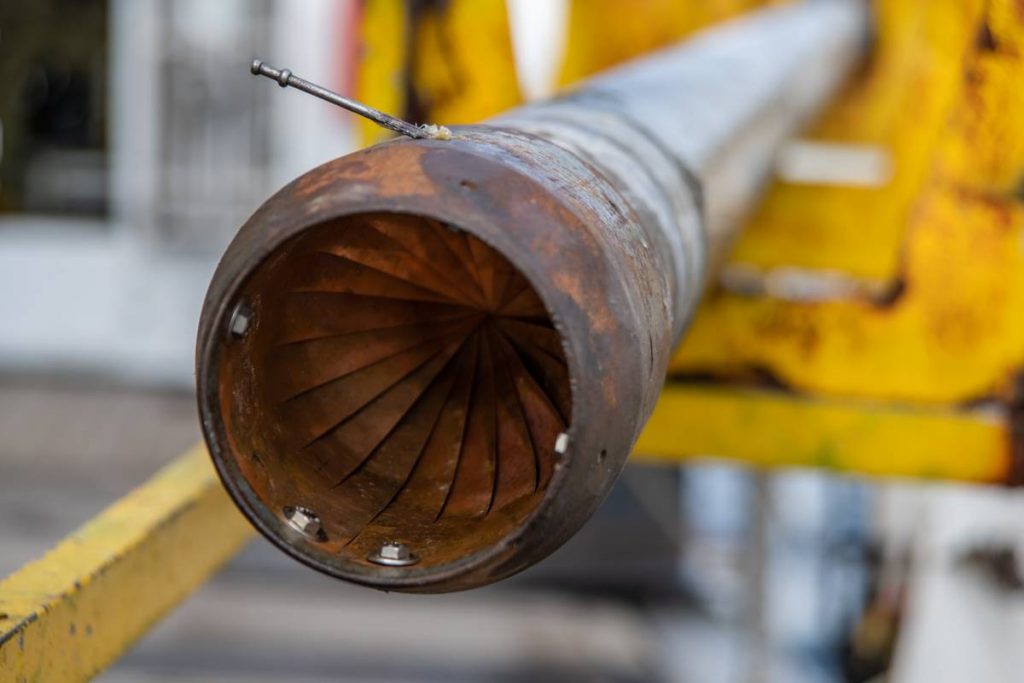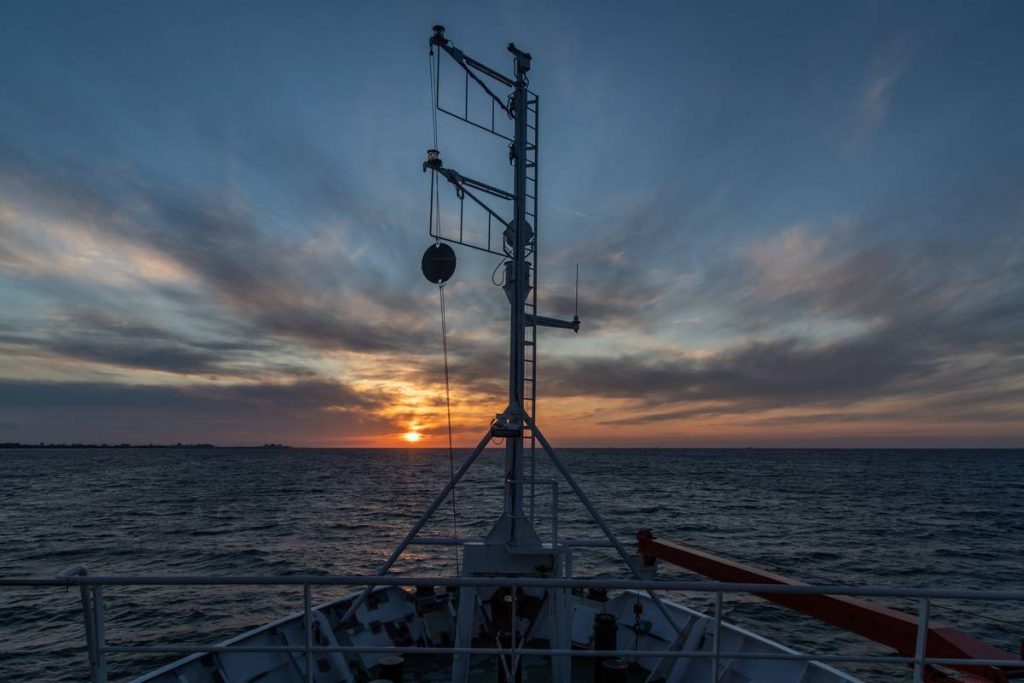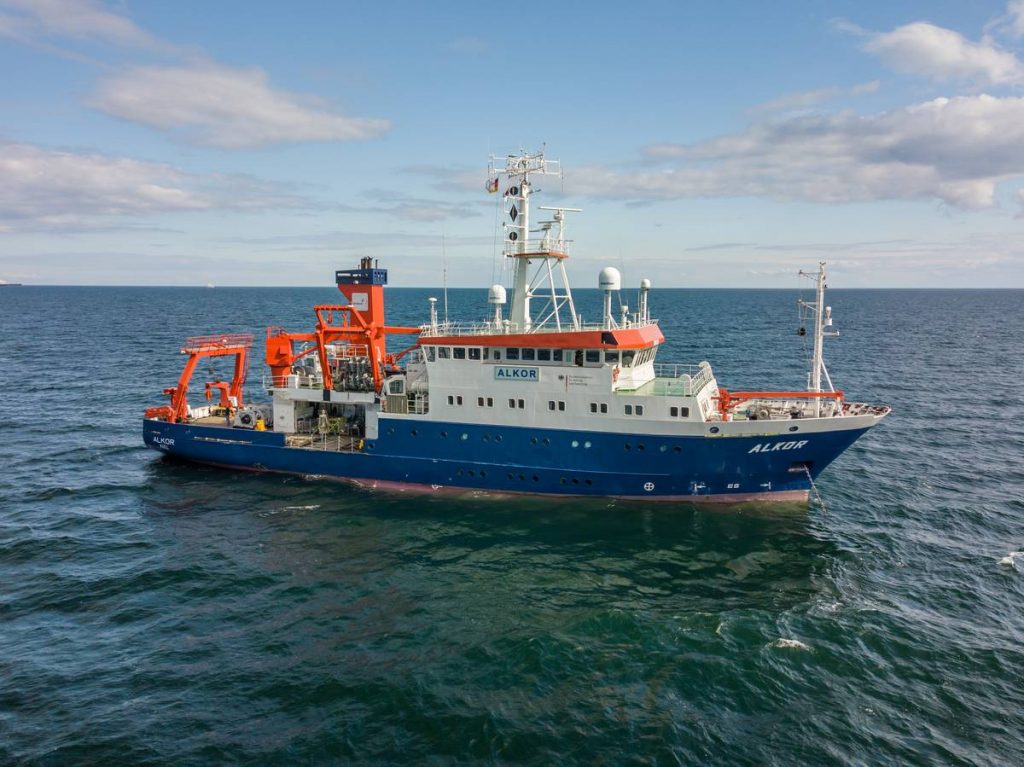ALKOR Ausfahrt für die digitale Lehre an der CAU
(English version below)
In der vergangenen Woche haben wir bereits berichtet, dass die Kieler Forschungsschiffe LITTORINA, POLARFUCHS und ALKOR nach einer Covid-19-bedingten Zwangspause wieder auslaufen dürfen. Dabei gelten aber strenge Regel für die Zahl der Menschen und die Hygiene an Bord.
Covid-19 stellt daher auch die Lehrenden und Studierenden am Institut für Geowissenschaften an der CAU vor große Herausforderungen. Einen Baustein in der Lehre in den Bachelor- und Masterstudiengängen ist normalerweise auch ein Praktikum an Bord eines Forschungsschiffes wie der ALKOR. Dazu gehört, dass die Studierenden sowohl den Einsatz der Forschungsgeräte als auch die Tag-Nacht-Abläufe an Bord kennenlernen.
Um den Studierenden zumindest digital einen Eindruck vom Leben und Arbeiten an Bord vermitteln zu können, hat ein fünfköpfiges Wissenschaftlerteam der Arbeitsgruppe Küstengeologie und Sedimentologie an der CAU unter Leitung von Professor Christian Winter an Bord der aktuellen ALKOR-Ausfahrt (AL 536) nun eine Woche einen Großteil der ursprünglich geplanten Arbeiten und Abläufe gefilmt und fotografiert. Dabei sind zahlreiche Online-Tutorials entstanden, die Studierenden zur Verfügung gestellt werden.
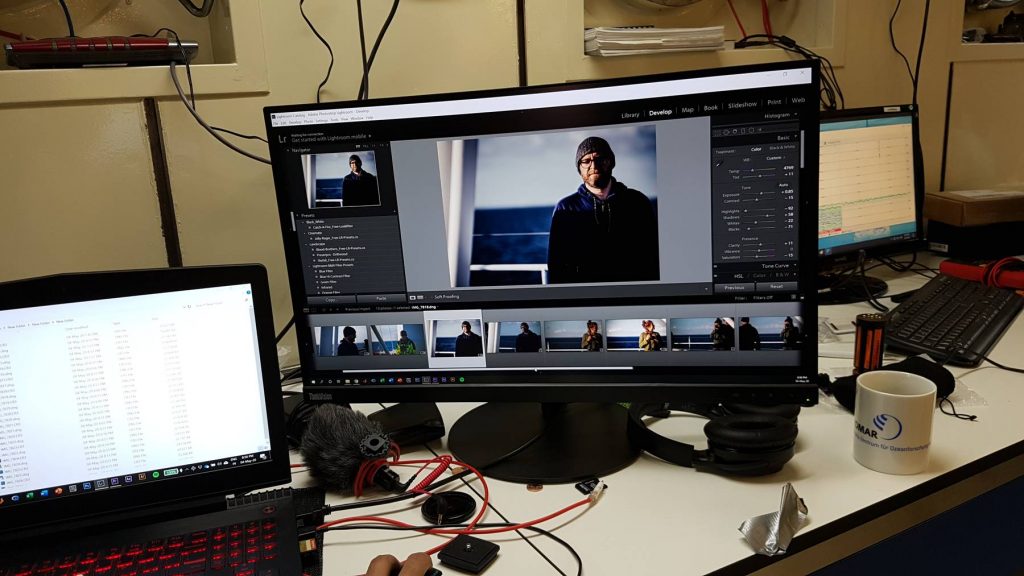
Es wurden Messungen und Probennahmen u.a. mit Fächerecholot, CTD, Kastengreifer und Schwerelot durchgeführt. Bei besten Bedingungen konnte von Kiel aus über den Fehmarn Belt und Stohl die Wassersäule und Sedimentschichten besonders im Flachwasser im küstennahen Bereich der Ostsee untersucht werden.
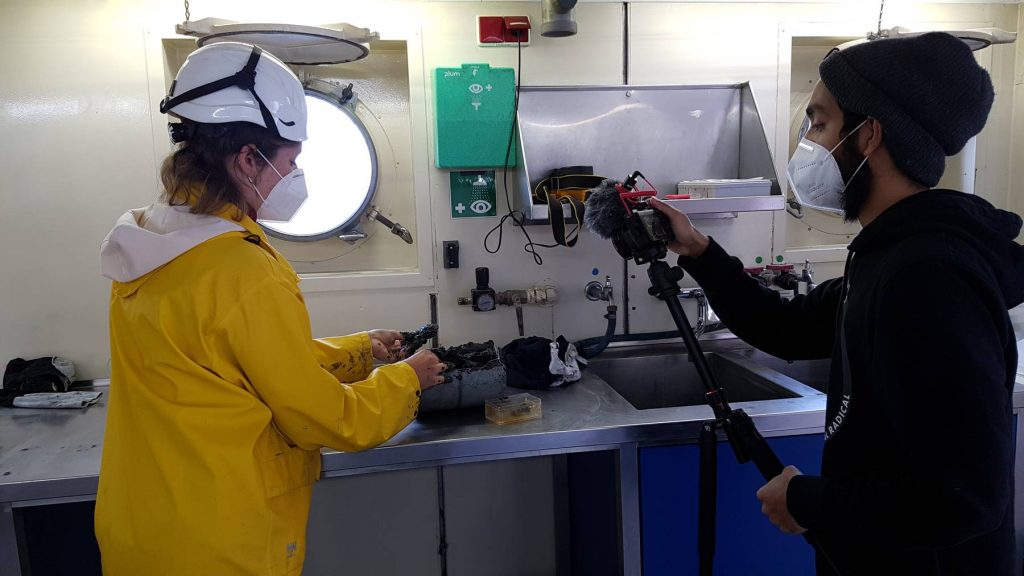
Ganz unten findet ihr weitere Eindrücke von der ungewöhnlichen Fahrt, eingefangen vom aktuellen ALKOR-Kapitän Marc Petrikowski. Und wer noch mehr von der AG Küstengeologie und Sedimentologie sehen möchte, findet auf dem Instagram-Kanal der Uni-Arbeitsgruppe zwei Filmmitschnitte. (@coastalgeology.cau.kiel)
ALKOR expedition for digital teaching at the CAU
Last week we reported that the Kiel research vessels LITTORINA, POLARFUCHS and ALKOR are allowed to leave the port after a Covid-19-related compulsory break. However, strict rules apply to the number of people and hygiene on board.
Covid-19 therefore also poses a great challenge to the scientists and students at the Institute of Geosciences at Kiel University. An important part of the teaching in the Bachelor’s and Master’s programs usually is hands-on experience on board a research vessel. This includes the opportunity for students to get to know both the practical use of the research equipment and the day-and-night-processes on board. University regulations against the spread of the virus include a strict ban of student field trips so that this year’s courses had to find alternatives.
In order to give the students at least a visual impression of life and work on board, a five-member team of scientists of the Coastal Geology and Sedimentology Working Group, led by Professor Christian Winter, has spent one week on board the ALKOR (AL 536) filming and photographing a large part of the work and processes originally planned. This resulted in a visual documentation and numerous tutorial videos which soon will be made available to the students.

Ship-based data aquisition and sampling were carried out with, among others, sidecan sonar, multibeam echo sounder, CTD casts, grab samplers, box corers, and a gravity corer. Under best weather conditions, the water column and sediment layers especially in the shallow water environment at the Baltic Sea could be investigated, from Kiel via the Fehmarn Belt and Stohl.
Some more impressions of the unusual trip captured by the current master of the ALKOR Marc Petrikwoski, you can find at the bottom of the page. Two film recordings and more information in the on the Coastal Geology and Sedimentology working can be found on the group’s Instagram channel (@coastalgeology.cau.kiel)
Kontakt / contact
Christian Winter, christian.winter@ifg.uni-kiel.de
https://www.sedimentologie.ifg.uni-kiel.de/de/ag/winter
